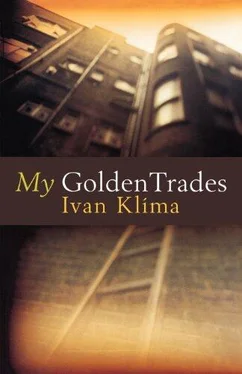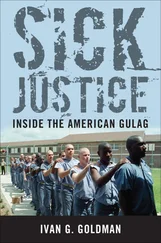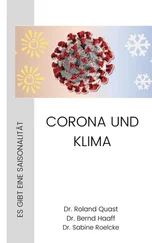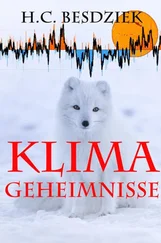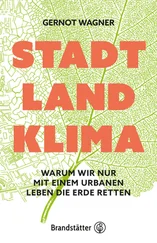Ivan Klima - My Golden Trades
Здесь есть возможность читать онлайн «Ivan Klima - My Golden Trades» весь текст электронной книги совершенно бесплатно (целиком полную версию без сокращений). В некоторых случаях можно слушать аудио, скачать через торрент в формате fb2 и присутствует краткое содержание. Год выпуска: 1998, Издательство: Granta UK, Жанр: Современная проза, на английском языке. Описание произведения, (предисловие) а так же отзывы посетителей доступны на портале библиотеки ЛибКат.
- Название:My Golden Trades
- Автор:
- Издательство:Granta UK
- Жанр:
- Год:1998
- ISBN:нет данных
- Рейтинг книги:4 / 5. Голосов: 1
-
Избранное:Добавить в избранное
- Отзывы:
-
Ваша оценка:
- 80
- 1
- 2
- 3
- 4
- 5
My Golden Trades: краткое содержание, описание и аннотация
Предлагаем к чтению аннотацию, описание, краткое содержание или предисловие (зависит от того, что написал сам автор книги «My Golden Trades»). Если вы не нашли необходимую информацию о книге — напишите в комментариях, мы постараемся отыскать её.
My Golden Trades — читать онлайн бесплатно полную книгу (весь текст) целиком
Ниже представлен текст книги, разбитый по страницам. Система сохранения места последней прочитанной страницы, позволяет с удобством читать онлайн бесплатно книгу «My Golden Trades», без необходимости каждый раз заново искать на чём Вы остановились. Поставьте закладку, и сможете в любой момент перейти на страницу, на которой закончили чтение.
Интервал:
Закладка:
As though they had sensed we were talking about them, two Vietnamese in overalls approached us with a swinging gait they had adopted from their Czech co-workers. They were gaunt and slightly built, one was half a head shorter than the other. They stopped at the edge of our grave-site
and observed us for a while with polite interest. Then finally one of them asked: 'So, did anything you find today, madame?'
'Nothing!' said Lida, looking up from the grave.
'Not yet a Celtic jewel, even?' asked the shorter one. His intonation was a remarkable blend of the orient and Pilsen.
'Not a single thing,' said Lida.
'It is regretful,' replied the Vietnamese. 'Truthfully. We were forward looking.'
'Curious little buggers, aren't they?' said the foreman as soon as the Vietnamese had wandered off. 'They get hammered every morning. They drink a bottle of beer for breakfast and can't hold it — I'm afraid to send them up on the scaffolding.' He took his pick and with delicate, almost gentle blows, broke the hard, compacted clay. He was the one who had accidentally discovered the burial ground. Last spring, when a bulldozer was digging a trench for the foundations, Vítek noticed something glittering in the piles of earth. He picked it up, rinsed it in water — and found himself holding a golden ear-ring. Not the kind they make today; a solid, heavy thing. The foreman had not been surprised at his discovery: a gypsy woman had predicted he'd find treasure three times in his lifetime. Of course, she hadn't necessarily meant a treasure of precious metal. As soon as he made his discovery, Vítek took the golden ring to a museum, where it caused a great commotion. The trinket came from the young Halstat period, or even from the early Laten period. It was a magnificent example of its kind. He may have chanced upon a whole Celtic burial ground, they said, and warned him to take a good look at everything the bulldozer turned up. Vítek started looking carefully, but then the archaeologist
had arrived in the corner of the site, along with her assistants and some amateur enthusiasts, and they began to dig. Foreman Vítek became an enthusiastic amateur. He lived nearby, and he continued to draw wages even when he was digging here. Deep down, he was hoping to find the other ear-ring; on top of that, he was rather fond of Mrs Petra.
So far, no one had found the other ear-ring, nor any other trace of gold. The most likely explanation was that the Celtic goddess Nerthus, Mother Earth, had planted the ear-ring there to prevent the last remains of a people who had worshipped her and made sacrifices to her from being scattered by a bulldozer.
'All the same, I'm telling you,' the foreman went on, 'these little gooks — it's the start of a whole new wave of immigration. '
'Whatever do you mean by that?' asked Lida.
'They've come here from the east, haven't they? There's more of them around than dog-shit on the pavement. A week ago in our housing estate, the building inspector just okayed two new dormitories; they've already filled them. '
'You mustn't look at it like that,' Lida objected. 'They work here, after all, and they've got to live somewhere.'
And our people are all moving west,' Vítek continued, pursuing his theory. 'Can you imagine what the place would be like if the borders weren't wired up?'
'Dear God, where do you dredge up ideas like that?' said Petra at last. Vitek's remonstrances had been directed chiefly at her.
'You're the one always telling me how nations migrate,' said Vítek in his own defence, 'how these Celts suddenly disappeared.'
'But that was under completely different circumstances,' said Petra, and sighed, perhaps regretting the passing of those circumstances.
The Celts really had vanished. For centuries, they had worked on their fortified settlements, clearing the woods, grazing their herds. Some of the graves testified to the wealth of their princes, but as the beginning of the millennium from which we date our era approached, the earth seemed to have swallowed them up.
Were they wiped out by a plague? Or did they think the soil would no longer support them and so moved west with their herds, their tools and their clay vessels filled with grain? Or were they slaughtered or driven out by the wild warriors who lived to the north and east?
It occurred to me that if we admit the influence of what is called the genius loci, we may retrospectively conjecture about the events that took place. Perhaps one of the neighbouring rulers — more powerful, or maybe just more determined than the rest — brought his army to the very borders of our basin. Perhaps he would not even have had to enter the territory in arms because the local inhabitants respected the commands of their chieftains and Druids not to provoke the enemy, but rather to overwhelm him with their discipline, and with unexpected kindness. The conqueror would perhaps have summoned the chieftains and arrogantly demanded their submission in exchange for which he — the invader — would promise to protect their territory against invasion.
The chieftains would have weighed their options carefully before accepting subjection and protection. A treaty of vassalage was perhaps written — emphasizing that the signatories were entering into vassalage voluntarily—
and signed in a big ceremony. It wouldn't matter whether the signatories knew how to read and write. The treaty— like all such treaties — would be binding only on the subject peoples regardless of whether they even knew the treaty existed, let alone whether they had accepted and signed it.
We might surmise that the people were not happy about this state of affairs. Some of them rebelled and were killed, others packed up their meagre belongings and struck out for the west or the south through the nearly impenetrable forests. In those idyllic times, when free movement was hindered only by lack of roads and the only impediments were bears or wolf packs, whole tribes could simply leave. But because we are considering what we have called the influence of a genius loci, we ought also to assume that not all of the subjected people withdrew, or were slaughtered; some must have simply adapted so completely to their conquerors that no one could have told master from slave when living, let alone in the grave.
And thus the Celts vanished from the places where we live today, and all that remained were burial grounds containing the ashes of their ancestors; and perhaps the gods and goddesses and spirits who had become too attached to the rivers and mountains and trees and rocks.
With a deafening roar of jet engines, a squadron of fighter planes chased each other across the sky. It was impossible to tell at that speed whether they belonged to the Celts or their conquerors. In any case, it made no difference. Masha dropped her knife and brush, looked up in alarm and put her hands over her ears.
The beautiful Petra also stopped digging. 'Yesterday we had Civil Defence exercises,' she said. 'An officer with a lot of brass on his shoulders came and gave us a pep-talk
about what to do if the bomb went off. He was pretty optimistic about our prospects, because — he kept assuring us — in the event of a nuclear war, we'd be issued with plastic coats and masks that you could put on in twenty seconds. He brought a set with him all wrapped up to show us how it worked. So he gazes out of the window and suddenly shouts: Fire-flash, south-south-west, approximately twenty kilometres away! He grabs the parcel, but he can't get the knot undone. He tries to break the string, but he can't do that either. He ends up having to borrow a knife from someone just so he can show us the protective gear. The fool has gone into a nuclear war without even taking a penknife! And you know what he says? He says, "Strictly speaking, comrades, I'm already dead. You see, a mere length of hempen twine can cost a man his life!'"
Читать дальшеИнтервал:
Закладка:
Похожие книги на «My Golden Trades»
Представляем Вашему вниманию похожие книги на «My Golden Trades» списком для выбора. Мы отобрали схожую по названию и смыслу литературу в надежде предоставить читателям больше вариантов отыскать новые, интересные, ещё непрочитанные произведения.
Обсуждение, отзывы о книге «My Golden Trades» и просто собственные мнения читателей. Оставьте ваши комментарии, напишите, что Вы думаете о произведении, его смысле или главных героях. Укажите что конкретно понравилось, а что нет, и почему Вы так считаете.
